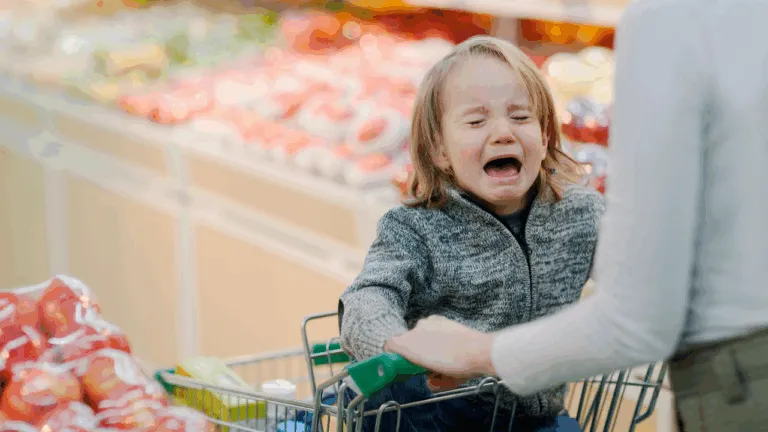
Aging isn’t just about getting older; it’s a journey full of life’s rich experiences, challenges, and lessons. This article unpacks the aging adventure, focusing on the unique hurdles and opportunities that come with it. Whether adapting to physical changes or embracing new social roles, it offers practical advice for flourishing during these golden years.
Understanding Age-Related Changes
Understanding the age-related changes that occur as we progress into our later years is essential for maintaining and enhancing our mental health and overall well-being. These changes can manifest differently in men and women, each facing unique challenges that require tailored approaches to health and wellness.
For Men: One significant change many men experience as they age is a gradual decrease in testosterone levels, which can have a wide range of effects, from reduced muscle mass and energy levels to changes in mood and cognitive function. This hormonal shift can contribute to feelings of sadness or depression and may impact a man’s self-esteem and overall mental health.
Tips for Men: Strength training and resistance exercises can be particularly beneficial. These activities help maintain muscle mass and contribute to a sense of achievement and well-being. Also, participating in social groups focused on fishing, woodworking, or volunteering can provide a sense of community and purpose, combating feelings of isolation and promoting mental health.

For Women: Women, particularly post-menopause, may experience a significant decrease in estrogen levels, which can affect their physical health, mood, and cognitive function. This hormonal change can increase the risk of developing osteoporosis and cardiovascular diseases, which in turn may lead to anxiety and stress regarding one’s health.
Tips for Women: Weight-bearing exercises, such as walking, dancing, or yoga, can help strengthen bones and improve physical health, reducing the risk of osteoporosis. Engaging in mentally stimulating activities like reading, puzzles, or learning new skills can also support cognitive health. Further, joining support groups or social clubs can provide emotional support and reduce feelings of loneliness, uplifting overall mental well-being.
For both men and women, maintaining social connections and engaging in cognitive activities are vital in mitigating the effects of aging. Studies have consistently shown that seniors who remain physically active and socially engaged tend to have better cognitive function and a higher quality of life. Encouraging activities that combine physical, mental, and social elements can offer the most comprehensive benefits, helping older adults navigate the challenges of aging with resilience and joy.
Coping with Isolation, Grief and Loss
Coping with isolation, grief, and loss presents significant challenges for many elderly individuals, particularly in the aftermath of losing a spouse or close friend. These experiences can profoundly affect mental health, potentially leading to intense feelings of loneliness and depression. Understanding the stages of grief and the importance of a supportive environment is crucial in navigating these difficult times.
The Stages of Grief
Grief typically unfolds in several stages, though it’s important to remember that everyone’s experience is unique, and not everyone will go through all stages or in the following order.
- Denial: Initially, there may be a sense of disbelief or numbness, as if the loss isn’t real.
- Anger: As reality sets in, frustration, helplessness, and anger can emerge.
- Bargaining: During this stage, individuals may ruminate on what they could have done differently or wish for a way to reverse the loss.
- Depression: A deep sense of sadness and loss is felt, often accompanied by withdrawal from social activities and a lack of interest in life.
- Acceptance: Eventually, there may come a sense of coming to terms with the loss, acknowledging it as part of life, and finding a way to move forward.
Coping Strategies
Creating a supportive environment that encourages the expression of grief is essential. Technology may help reduce isolation through virtual meetups or participation in online community groups. Encouraging engagement in activities that promote connection and provide a sense of purpose is also beneficial.
Online Resources for Grief Counselling and Support in Australia
Several Australian-based online resources provide grief counselling and support:
- Griefline: Offers telephone and online counselling services focused on grief and loss. Their services are confidential and provided by trained volunteers. Website: griefline.org.au
- Australian Centre for Grief and Bereavement: A specialist bereavement service providing counselling, support, education, and training. They offer resources and support for those dealing with grief. Website: grief.org.au
- Beyond Blue: While not exclusively focused on grief, Beyond Blue provides support for Australians dealing with depression and anxiety, which can accompany the grieving process. They offer online forums where individuals can share their experiences and support each other. Website: beyondblue.org.au
- Lifeline Australia: Offers 24/7 crisis support and suicide prevention services. While Lifeline is not solely focused on grief, it provides crucial support for those struggling with the intense emotions that loss can bring. Website: lifeline.org.au
To help yourself or a loved older adult cope with loss and loneliness, encourage them to talk about their feelings with friends or family. It’s also helpful to connect them with community groups or online forums where they can meet others facing similar situations. This can make them feel less isolated and more supported.
Mental Health Benefits of Leveraging Community Resources for the Elderly
Let’s continue and dive into how community resources boost older adults’ mental health: enhancing social ties, promoting physical fitness, stimulating the mind, and providing crucial mental health support for a happier, more connected life.
Enhanced Social Connections: One of the most significant mental health benefits for older people in leveraging community resources is the opportunity to forge new social connections and strengthen existing ones. Senior centres, clubs, and group activities designed for older adults provide avenues for social interaction, helping combat loneliness and isolation, which are common issues in this demographic. Engaging in social activities can improve mood, decrease the risk of depression, and even enhance cognitive function.
Increased Physical Activity: Many community resources offer exercise classes, walking groups, and other physical activities tailored to older adults. Regular physical activity is not only beneficial for physical health; it also has profound mental health benefits. It can help reduce the risk of developing dementia, lower stress levels, and improve sleep, all contributing to better overall mental well-being.
Cognitive Stimulation: Activities like book clubs, educational classes, and arts and crafts offered by libraries or senior centres provide cognitive stimulation, which is crucial for maintaining mental agility in older adults. Engaging in these intellectually stimulating activities can help slow the progression of cognitive decline, reduce the risk of Alzheimer’s disease, and improve self-esteem and a sense of accomplishment.
Access to Mental Health Support: Community resources often include access to counselling and mental health services geared towards the elderly. These services can provide support for those dealing with grief, adjustment issues, depression, and anxiety, offering strategies to manage mental health conditions effectively. Having access to these services can make a significant difference in the quality of life for the elderly, offering them support in times of need.

Resource List: Australian-Based Community Resources for the Elderly
Here’s a list of Australian-based community resources that can serve as a starting point for you or an elderly loved one to engage with their community and reap the mental health benefits:
- Council on the Ageing (COTA) Australia – Offers a variety of programs and services aimed at improving the lives of older Australians.
- National Seniors Australia – Provides access to social events, advocacy, and information on issues affecting the elderly.
- Australian Men’s Shed Association – Focuses on men’s health, well-being, and social inclusion, offering a space for craftwork and camaraderie.
- The Benevolent Society – Provides various support services, including social support and community engagement programs for the elderly.
- Companion Cards – Allows those needing care to participate in community events and activities at a reduced cost or for free, fostering social inclusion.
Engaging with these resources can greatly enrich the lives of the elderly, offering them support, community connection, and opportunities for personal growth and well-being.
The role of family support in the mental health and well-being of elderly individuals cannot be overstated. Strong family connections provide the elderly with a sense of belonging, love, and security, which are fundamental to their emotional and mental health. Engaging in regular interactions with family members not only combats loneliness but also reinforces their value and place within the family unit. These interactions can be a vital source of emotional support, significantly boosting their self-esteem and overall happiness.
Encouraging Family Support
Family involvement is crucial for more than just emotional support; it plays a significant role in the early detection of mental health issues. Family members who maintain close relationships are more likely to notice changes in behaviour, mood, or overall health, enabling early intervention and support for mental health concerns. Additionally, encouraging and participating in healthy lifestyle choices together, such as exercise, balanced eating, and hobbies, can greatly contribute to the mental and physical well-being of elderly loved ones.

Example Routine for Encouraging Family Support:
- Monday: Start the week with a morning phone call to discuss plans for the week, share any appointments, or simply catch up on weekend activities.
- Wednesday: Mid-week video call for a more personal interaction, possibly involving grandchildren or other family members, to share stories, read together, or play an online game.
- Friday: End the week with a family dinner, either in person if possible, or through a virtual dinner date where everyone cooks the same meal and enjoys it together over a video call.
- Saturday: Engage in a shared activity, such as a walk in the park, a visit to a museum, or a craft project, tailored to the interests and mobility of the elderly family member.
- Sunday: Weekly family meeting to discuss any concerns, upcoming events, or simply to share how everyone is feeling, ensuring that the elderly family member feels involved and valued.
This routine not only ensures regular contact but also varies the types of interactions, making each contact meaningful and engaging. It fosters a supportive and inclusive family environment, essential for the mental health and well-being of elderly individuals.
Conclusion
In wrapping up, aging gracefully is all about staying connected, active, and mentally engaged. It’s crucial to lean on friends, family, and community resources to positively navigate this phase. The insights shared here underscore the beauty of aging – it’s not just about facing challenges but also about seizing opportunities to live fully and joyfully.


